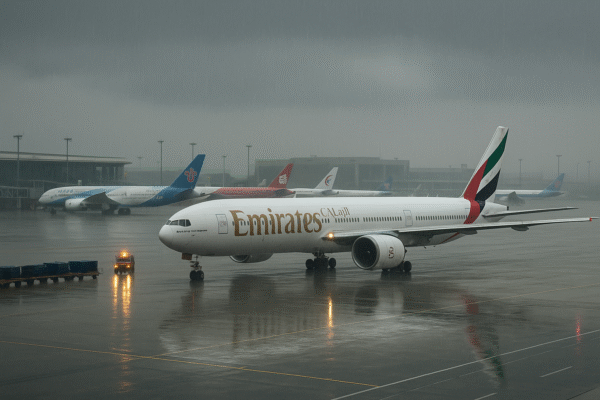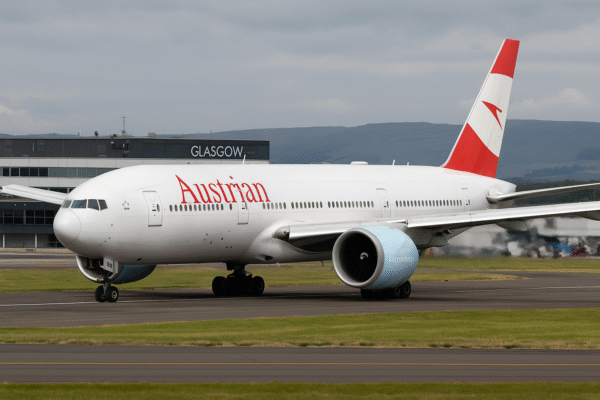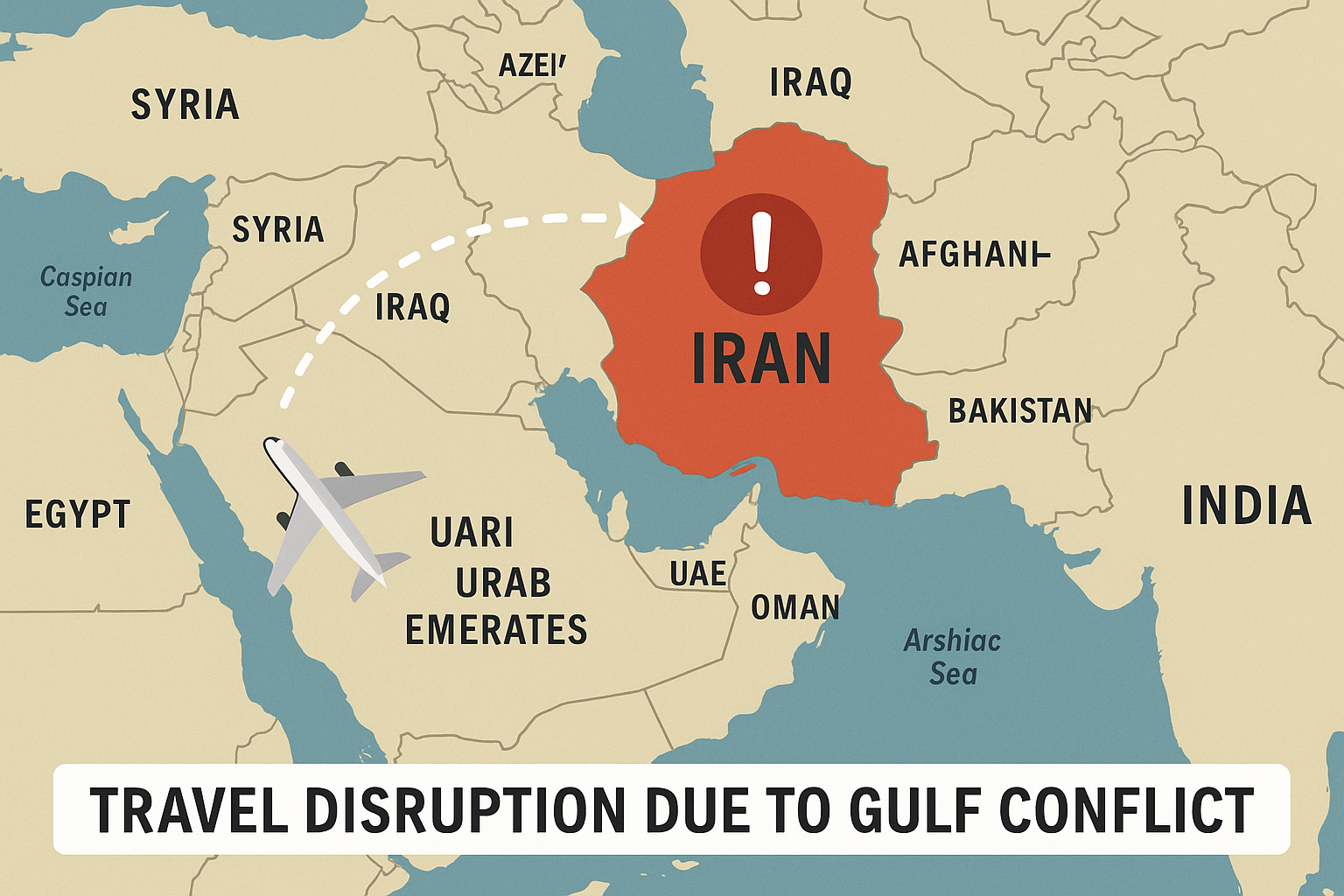UK Travel Advisory Raises Alarm for British Tourists Visiting Gulf Countries Amid US-Iran Escalation
The United Kingdom’s Foreign, Commonwealth & Development Office (FCDO) has issued a fresh travel advisory for British nationals planning trips to several Gulf Cooperation Council (GCC) countries amid intensifying tensions between the United States and Iran. The advisory includes popular travel destinations such as the United Arab Emirates, Qatar, Oman, Bahrain, Kuwait, and Saudi Arabia, urging travelers to remain cautious and vigilant in the wake of heightened geopolitical unrest.
This renewed guidance follows U.S.-led airstrikes on Iranian nuclear facilities on June 22, 2025, targeting sensitive locations such as Fordow, Natanz, and Esfahan. These actions have sparked concerns about retaliatory moves by Iran and its regional allies, raising the risk of broader regional destabilization that could significantly impact civil aviation and tourism.
Airspace Disruptions and Airline Reroutes in the Gulf
With the region’s airspace becoming increasingly volatile, airlines have taken swift action to reroute or suspend flights that traverse high-risk zones. FlightRadar24 reports a notable uptick in detours avoiding Iranian, Iraqi, Syrian, and Israeli airspace, with preferred alternate paths now going north via the Caspian Sea or south through Saudi Arabia and Egypt.
These route changes, while ensuring passenger safety, come with trade-offs: longer flight durations, increased fuel consumption, and widespread logistical challenges for both airlines and passengers. Several international carriers—including United Airlines, Lufthansa, Air France-KLM, and British Airways—have announced modified schedules or temporary route suspensions to Gulf destinations like Dubai, Doha, and Muscat.
Israel’s carriers, including El Al, Arkia, and Israir, have ceased operations to and from the Gulf region altogether, reallocating capacity to emergency evacuation flights for stranded nationals.
Tourism Industry in the UAE and GCC Feels the Shockwaves
The United Arab Emirates, which hosted over one million British tourists in 2024, is already experiencing tourism ripple effects due to uncertainty in regional travel. As of now, Dubai International Airport (DXB) and Abu Dhabi International Airport (AUH) remain operational, but potential airspace closures loom large.
The UAE’s reliance on international tourism—particularly from the UK, Europe, and Asia—means that any sustained disruption could have economic consequences. In cities like Dubai and Abu Dhabi, known for their luxury retail, cultural attractions, and business travel, hoteliers and tour operators are bracing for cancellations or reduced bookings if flight disruptions persist.
Qatar, home to Hamad International Airport (DOH) and a major global hub via Qatar Airways, has also seen flight delays and scheduling realignments. Oman, a rising tourism hotspot offering tranquil beaches, rugged mountains, and cultural heritage, now faces uncertainty amid broader GCC instability.
British Tourists Urged to Stay Informed and Flexible
The FCDO has not imposed a travel ban on GCC nations, but it strongly advises travelers to remain alert, regularly check official updates, and adhere to local laws and instructions. Short-notice cancellations, rebooking issues, and long delays could significantly impact itineraries for tourists and business travelers alike.
Travelers are also urged to explore flexible ticketing options and travel insurance policies that cover delays or disruptions caused by geopolitical conflict. Some airlines have offered fee waivers or rebooking flexibility in light of the security climate.
In addition, the Safe Airspace global aviation database has flagged the Middle East as a region of “increased operational risk” but noted that no direct threats to commercial aviation have been identified. Still, the broader sentiment is one of caution.
Broader Implications for Gulf Security and Travel Corridors
This latest advisory underscores broader concerns about the Gulf’s vulnerability to geopolitical conflict spillover. While countries like the UAE, Qatar, and Oman have traditionally remained neutral and secure, their proximity to flashpoints like Iran and Iraq makes them susceptible to travel disruptions and indirect conflict exposure.
Moreover, the Gulf’s strategic role in global aviation—acting as a transit hub between East and West—means any closure or escalation can ripple across continents. Airlines and logistics providers are now recalibrating long-haul routes to avoid potential escalation zones, creating pressure on schedules and passenger volumes.
Outlook for Summer and Autumn Travel
Looking ahead, the UK government’s advisory is likely to affect travel patterns through summer and into the autumn. The number of UK nationals flying to the Gulf could decline unless tensions de-escalate or safety guarantees are reaffirmed by airlines and governments.
British travel agencies are adjusting recommendations, suggesting alternate destinations in Southeast Asia or Southern Europe until the Middle East stabilizes. However, for many Gulf-based expats and business travelers, complete avoidance is not practical, making real-time updates and travel insurance vital.
Conclusion: Prepare and Stay Alert
As the US-Iran conflict continues to unfold, the UK’s travel advisory acts as a critical reminder for tourists to exercise caution, flexibility, and preparedness. While Gulf nations like the UAE, Qatar, and Oman remain open for tourism, the surrounding instability means that last-minute disruptions are a real possibility.
Travelers should consult the FCDO’s website and subscribe to alerts for specific country updates, in addition to maintaining communication with their airline and travel agent. With informed planning and an adaptive approach, it is still possible to enjoy a safe journey through the Gulf—albeit with some added complexity.
For more travel news like this, keep reading Global Travel Wire













